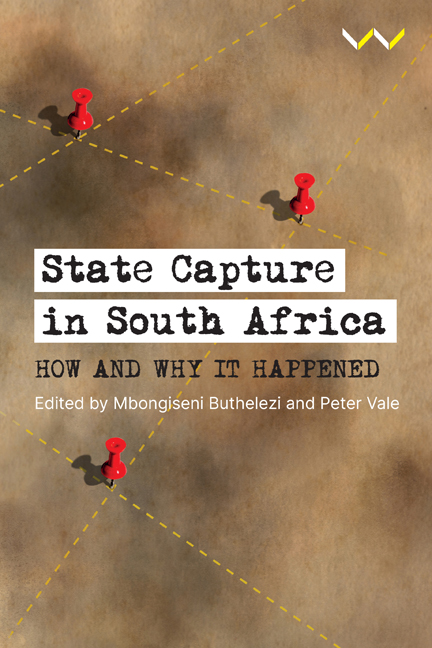Chapter 9 - Cycles of State Capture: Bringing Profiteers and Enablers to Account
Published online by Cambridge University Press: 28 February 2024
Summary
There is growing recognition that the challenge of corruption and state capture in South Africa is deep-rooted in the country's history. The early period of settler colonialism in South Africa is exemplary of state capture, given that Dutch rule was characterised by the use of state power to enable the Dutch East India Company to commercialise and draw significant profit from the then station. The Dutch East India Company was one of the world's first examples of a true multinational corporation. There are many alignments between South Africa's past and contemporary state capture. But using this history to score narrow points is not helpful. On all sides of the country's politics, there is a tendency to distract from a discussion of the malfeasance of one era by pointing to the other.
Consider the cases of F.W. de Klerk and Jacob Zuma. Both have wrought enormous suffering on many South Africans through their actions – the former as the last leader of apartheid South Africa and the latter as the fourth democratically elected president of the country, who is deeply implicated in the matter of state capture. Yet, when it suited De Klerk, he ignored the fact that the apartheid system was a crime against humanity, only conceding the point in 2020 (Kiewit 2020). At the same time, he, and the F.W. de Klerk Foundation, frequently passed judgement on the conduct of politicians like Jacob Zuma, while ignoring their complicity in serious crimes (Thale 2021).
Equally, when Zuma was facing arrest in late June 2021 for defying an order of the Zondo Commission, his supporters pointedly asked why Zuma was the target when De Klerk had never truly accounted for his role in the apartheid regime. As Jacob Zuma's brother Khanya is reported as stating, ‘I am saying both [P.W.] Botha and De Klerk were above the law. How do they say this to my brother? They must first go wake Botha and call De Klerk, and then we’ll see if my brother did really break the law. If they haven't brought these people up to answer, I, as a Zuma, say there is no such a law in South Africa’ (Singh 2021).
- Type
- Chapter
- Information
- State Capture in South AfricaHow and Why It Happened, pp. 197 - 216Publisher: Wits University PressPrint publication year: 2023



